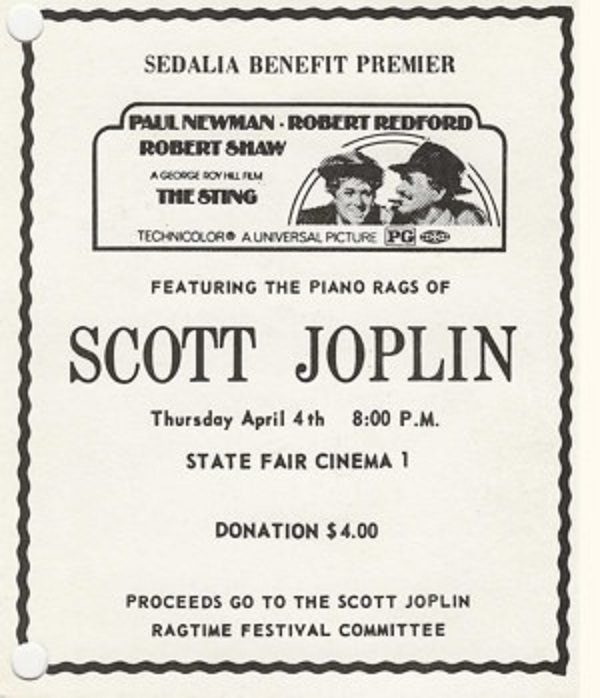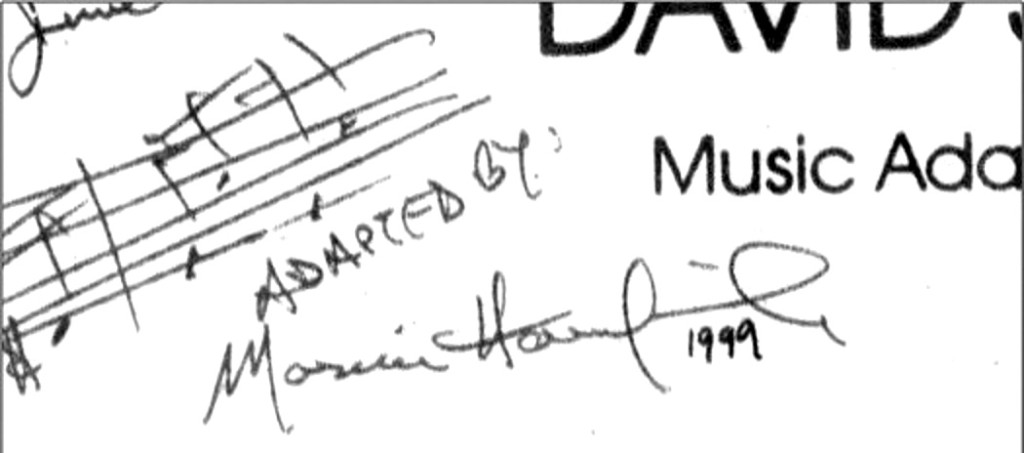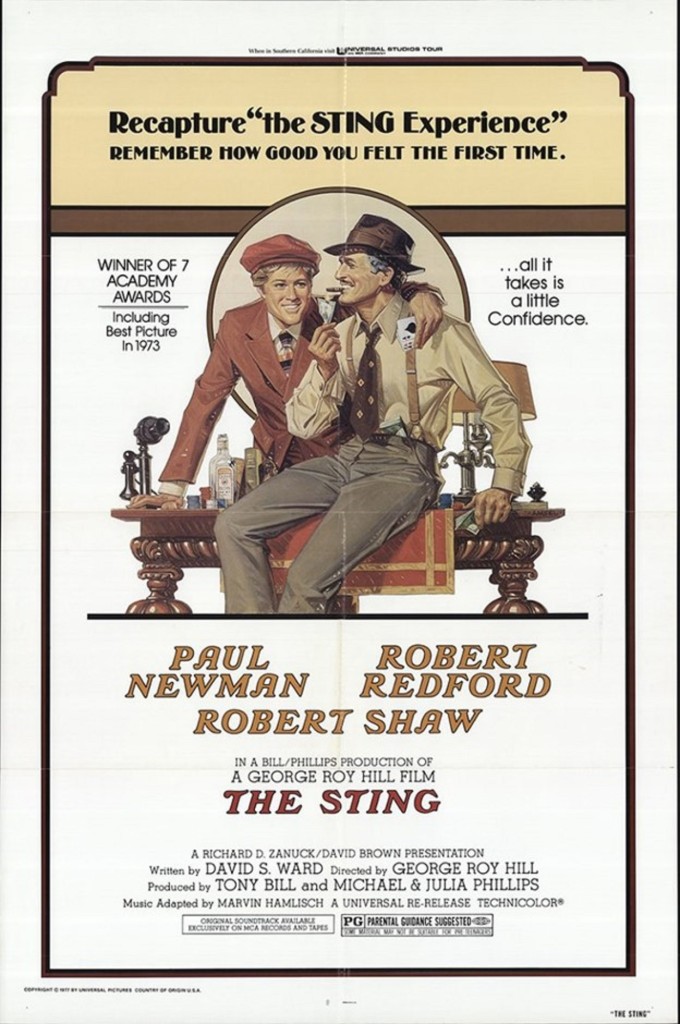As the year speeds to an end and we focus on holiday gaiety, I am reminded of a Christmas day anniversary that deserves acknowledgment. The release of George Roy Hill’s The Sting occurred on December 25, 1973, 50 years ago.
Anticipating this column, I began to collect impressions about the film from ragtime friends at the same time I took a fresh look at one of my all-time favorite movies. My first startling revelation was that many in the ragtime community had not even been born in 1973. As a result, many of my younger friends had only watched the video in recent years and several had not seen the film at all.
I had the same reaction in my teaching years when I looked out at my class of 18- to 30-year-olds in the late 1980s and realized they had not experienced President Kennedy’s assassination. It was quite different from working with students who remembered the event.
The release of the classic movie could not have come at a better time for the inaugural Scott Joplin Ragtime Festival that was held July 25-28, 1974. The use of Joplin’s compositions for the picture’s score awakened interest in his music and in his Sedalia story. The idea to use Joplin’s music was George Roy Hill’s inspiration and he chose Marvin Hamlisch to adapt the music for the film.
I distinctly remember watching the Academy Awards TV program on April 2, 1974. The Sting had earned ten nominations and it won seven Oscars that night, including the Best Film Award, Best Adapted Screenplay, and Marvin Hamlisch’s Best Song Score (original or adapted) for adapting Joplin’s compositions.

Two nights later Sedalia had a benefit showing of the movie at the local cinema. The manager of the theater, Loy Holman, arranged the showing and was later quoted that the extended run of that feature film earned the highest revenue of any film he had shown until then. Loy had an oversized theater poster from the film that he had festival performers sign over the years, including Marvin Hamlisch.
Joplin’s music suddenly appeared everywhere from ice cream trucks to symphony halls. The Ragtime Revival peaked with the international release of The Sting and thus the first Sedalia Festival was perfectly timed.
I contacted Marvin Hamlisch right after the Academy Awards and invited him to the first Sedalia festival. We talked several times and he agreed to be a headliner about a month later. However, two weeks before the July Festival, he called to say his producer Marvin Papp had moved up some deadlines for a musical on which he was working, and he wouldn’t be able to come. However, he indicated he would like to be invited to a later festival. That musical on which he was working was A Chorus Line, and he added a Tony award and a Pulitzer Prize to his trophy case for that one. A Chorus Line premiered in 1975. I can find no evidence that Marvin ever came to Sedalia. However, when he appeared in concert over in nearby Warrensburg at the University, then Festival Board President Gary Evert had Hamlisch autograph the Holman Sting poster and he signed it “adapted by” next to his printed name.”
From the beginning, Marvin Hamlisch’s use of Joplin’s music got attention. On receiving his Oscar for The Sting, the young arranger thanked the important people in his life and closed with “…to the man I never met, but whose music was just wonderful to work with, Scott Joplin.” He thrust the statuette in the air as if in salute and left the stage to return two more times to receive honors for his work on The Way We Were. I had the privilege of talking with Marvin Hamlisch on several occasions but in my conversations with Max Morath in recent years I learned a lot about Marvin’s career.
Hamlisch was a child prodigy and the youngest student ever admitted to Juilliard at the time. As a teenager, Max met him and was quite impressed by his talent. Later Max recommended him highly to his studio neighbor Dick Hyman who helped Marvin become a rehearsal pianist for Broadway productions.
Max was always impressed by what adapting Joplin’s music for The Sting had done to bring the music to popularity. He would remind me that Marvin always gave Joplin credit for his Oscar as he felt all performers who benefit in a major way from someone else’s work should acknowledge.

I have always been fond of asking people the title of their favorite compositions. Everyone names a favorite and even the artist(s) who made the music famous. However, few named the composer of their favorites.
Typical comments regarding the significance of The Sting score after 50 years all conclude that the music did bring greater public attention to the music. Some regretted that Hamlisch sometimes seemed to get credit for Joplin’s music and that the most popular pieces from the movie, The Entertainer and Easy Winners, are often referred to as The Sting. Nevertheless, most commented on the film’s importance in popularizing Scott Joplin’s work though that has waned over the decades. Many expressed a hope that ragtime, especially wonderful modern compositions, would again find \their way into a blockbuster motion picture score.
For many reasons, including the use of Joplin’s music, The Sting was selected in 2005 for preservation in the U.S. National Film Registry of the Library of Congress as being “culturally, historically, or aesthetically significant.”
Find or rent a copy of The Sting before the year ends and enjoy the blended syncopations of Scott Joplin, the unraveling of a great story and the fine acting in one of the country’s greatest motion pictures.
Larry Melton was a founder of the Scott Joplin Ragtime Festival in 1974 and the Sedalia Ragtime Archive in 1976. He was a Sedalia Chamber of Commerce manager before moving on to Union, Missouri where he is currently helping to conserve the Ragtime collection of the Sedalia Heritage Foundation. Write him at lcmelton67@gmail.com.






















